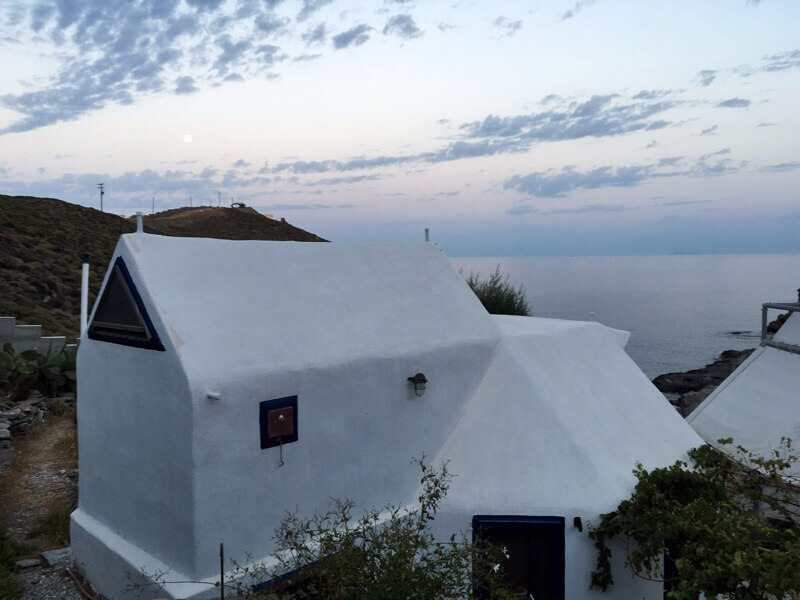Architectural details of Mikros Horio
Chris, a now-retired architect and academic, designed and built he and Kathy’s second home on the Greek island of Kythnos, lovingly dubbed Mikros Horio. It shows respect for the traditional Greek villages around it, as well as the shepherd huts dotted all over the expansive, terraced landscape. It’s also built with sustainability at the front of mind. Chris also designed many pieces of furniture for their home.
Everything is custom-made, starting with the gate to their property. Embedded in the concrete columns are clay Greek letters spelling out messages about generosity, what it means to be a good person, and the name of the property, “Gastronemi”, meaning “pregnant”.
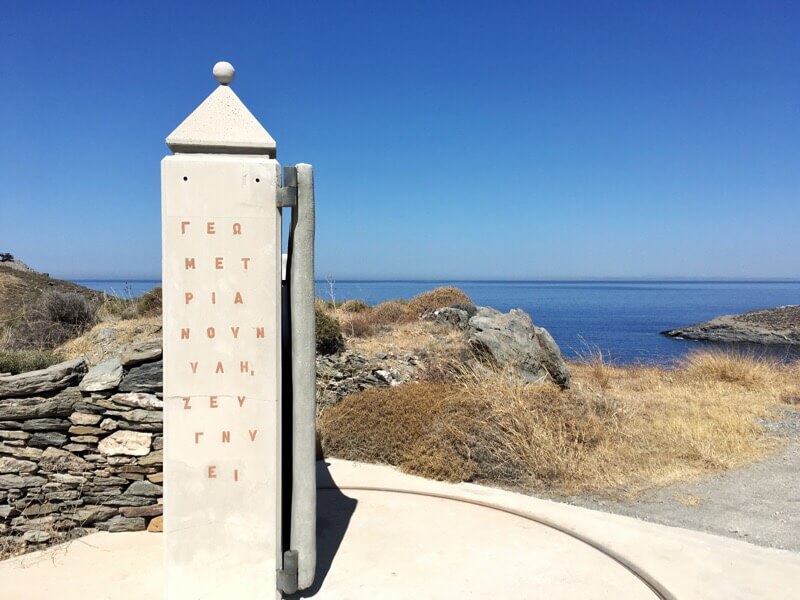
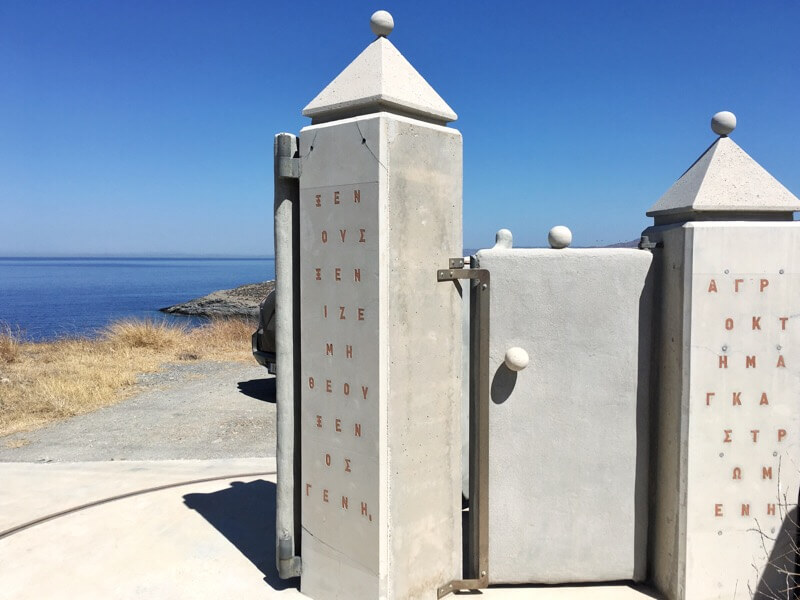
Upon entering, a lararium on your left features Chris’s academic and professional ancestors.
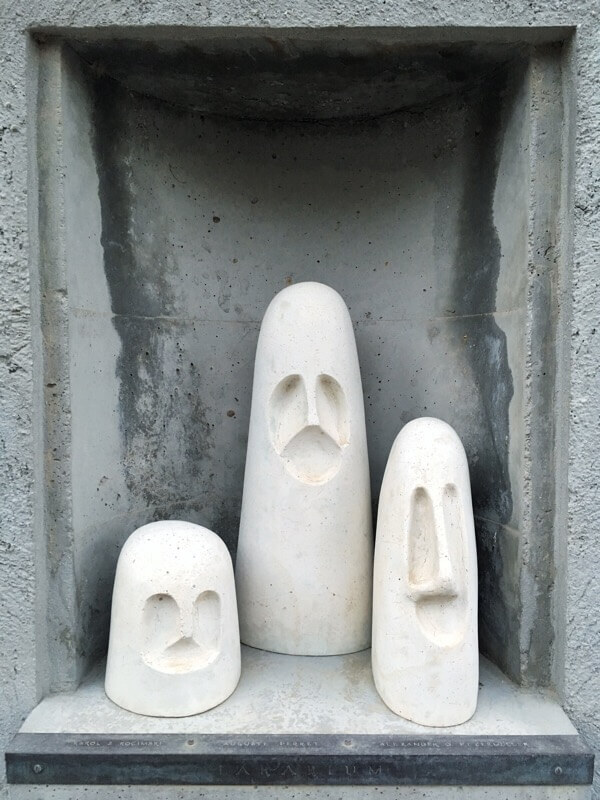
Chris made a bunch of little dudes whom he calls Cyclopes, even though some have more than one eye. Look carefully, and you might see them all over the place.
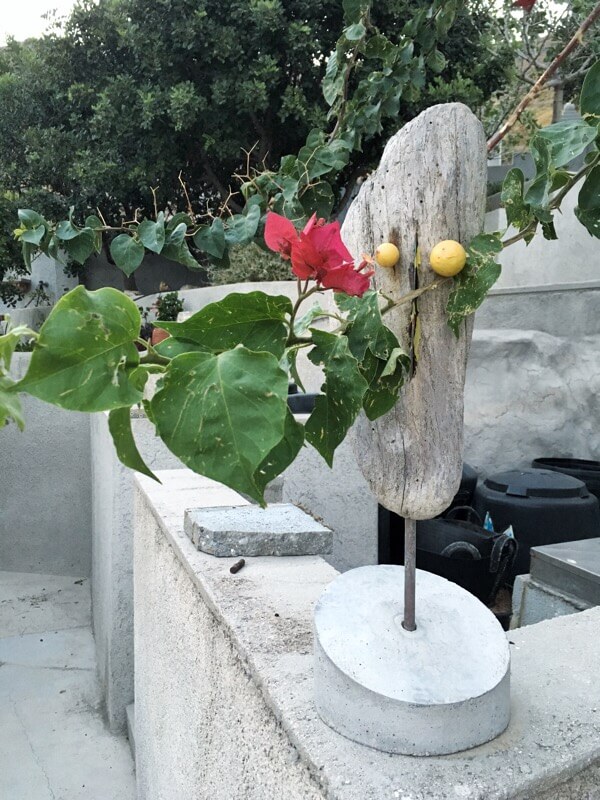
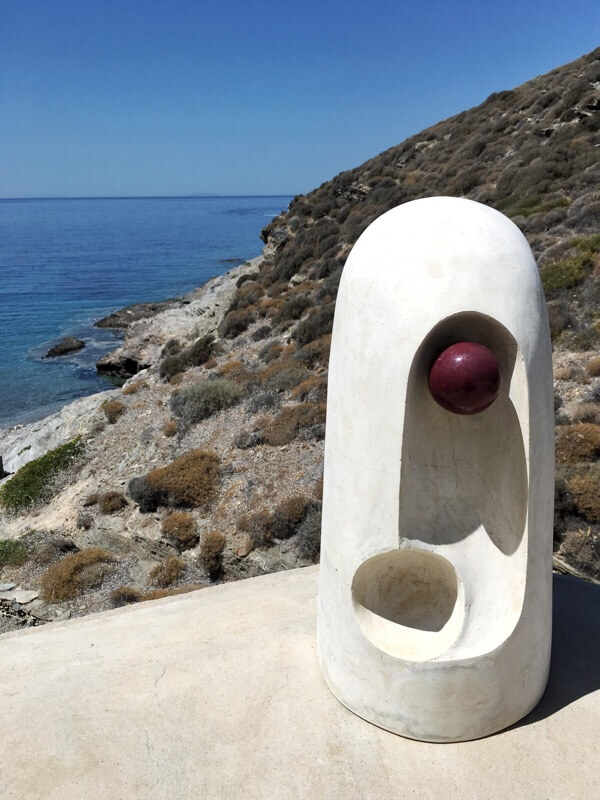
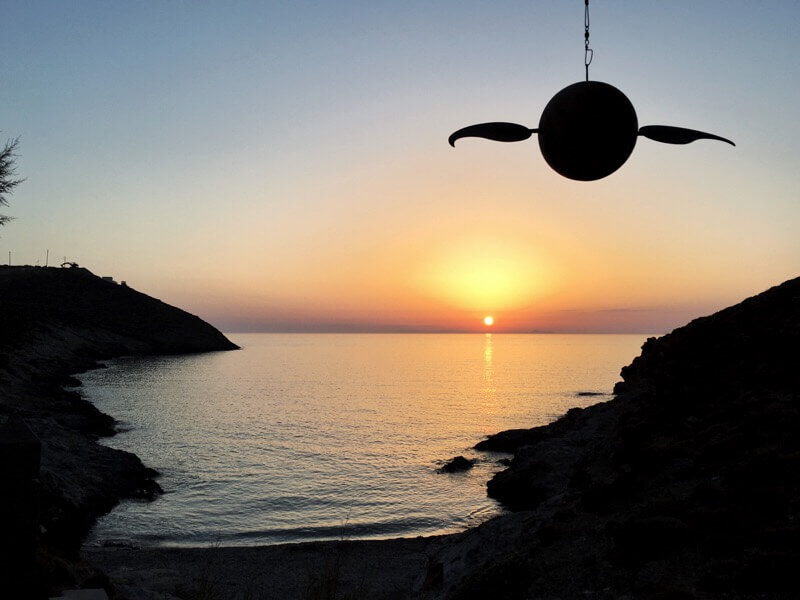
A uniquely designed bat house is located all the way up the ravine. If you were to look at a horizontal cross-section, the house is composed of three concentric plywood squares spaced three-quarters of an inch apart from each other. (This tight space is perfect for bats.) Chris drilled holes between the layers of space so that the bats can move between them and communicate with each other. They start dropping out the bottom of the house about 30 minutes after sunset to begin hunting for mosquitos and other tasty morsels.
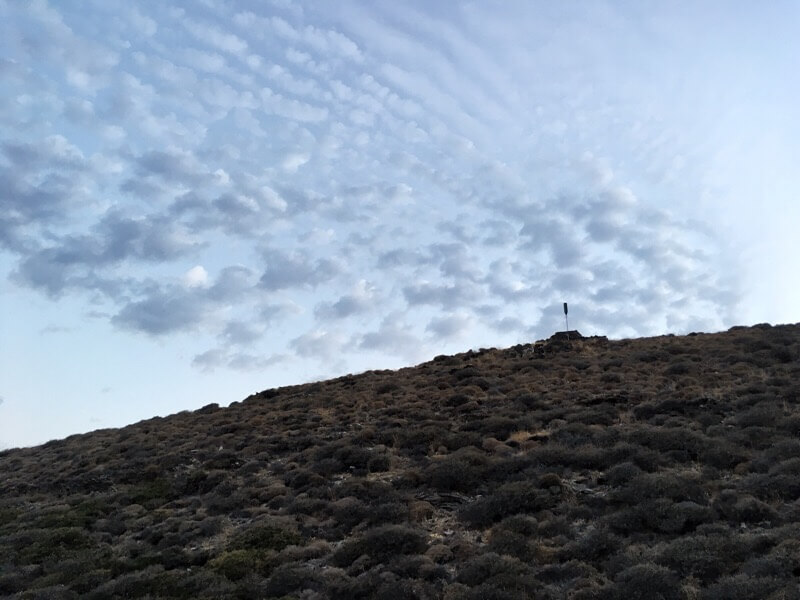
For Easter (and sometimes other parts of the year), they roast a whole goat on a spit. Kathy is still getting used to the wood-burning oven on the right.
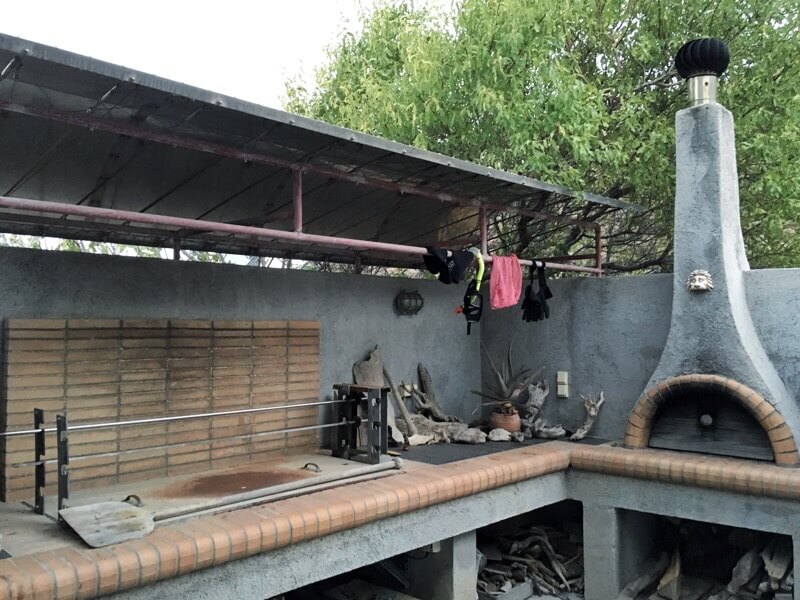
Their indoor kitchen is spacious and has everything you would expect a modern-day kitchen to be equipped with.
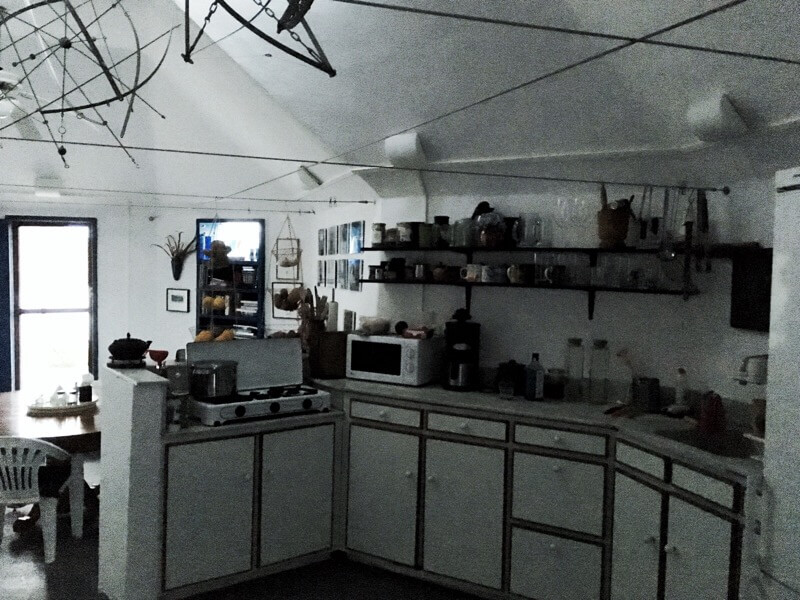
The gazebo and table just outside the indoor kitchen faces the Aegean Sea and is perfect for summertime meals.
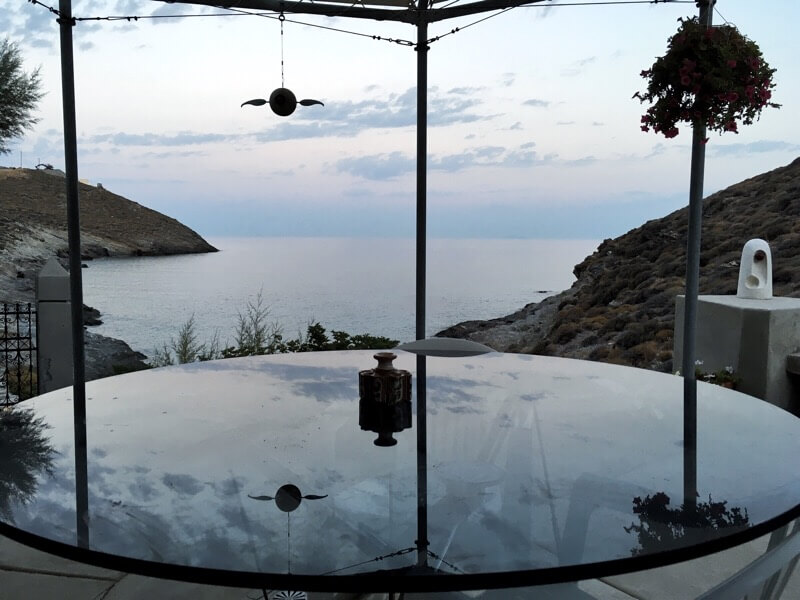
Chris likes to play with compression and tension, so you’ll see different versions of these funky mobiles above your head in many rooms.
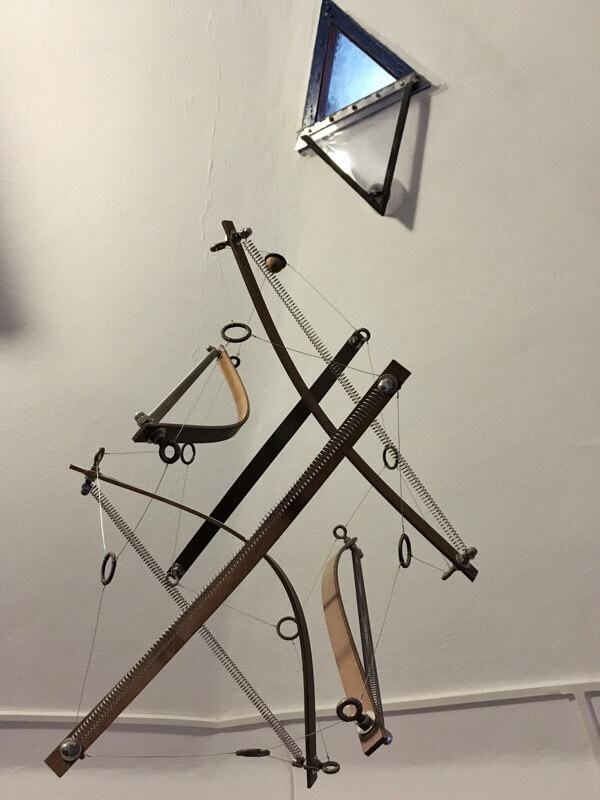
Their bedroom door has design elements that recall heavy doors of ancient times.
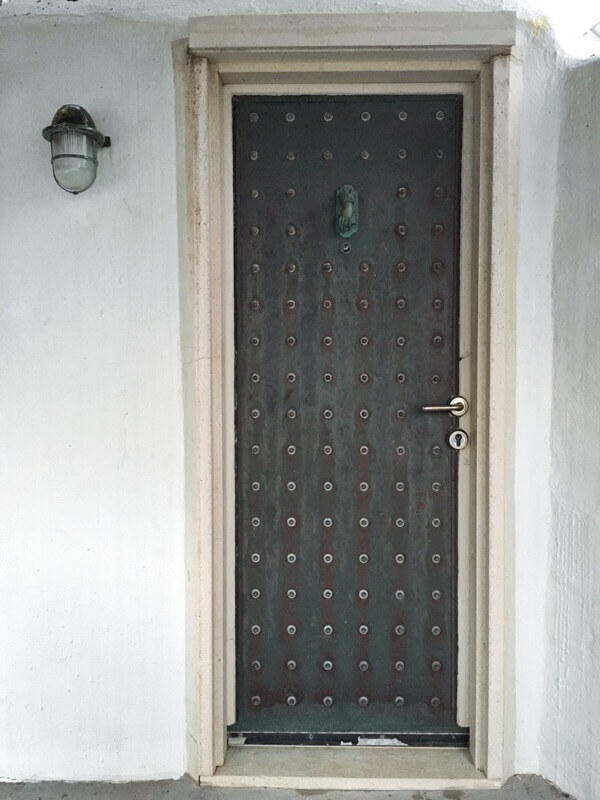
One of the guest bedrooms is where I stayed, and it has three twin beds in it for multiple guests. The triangular windows in the ceiling keep the rooms less humid and prevent mold from growing. You can also see Kathy’s photos hanging on the wall.
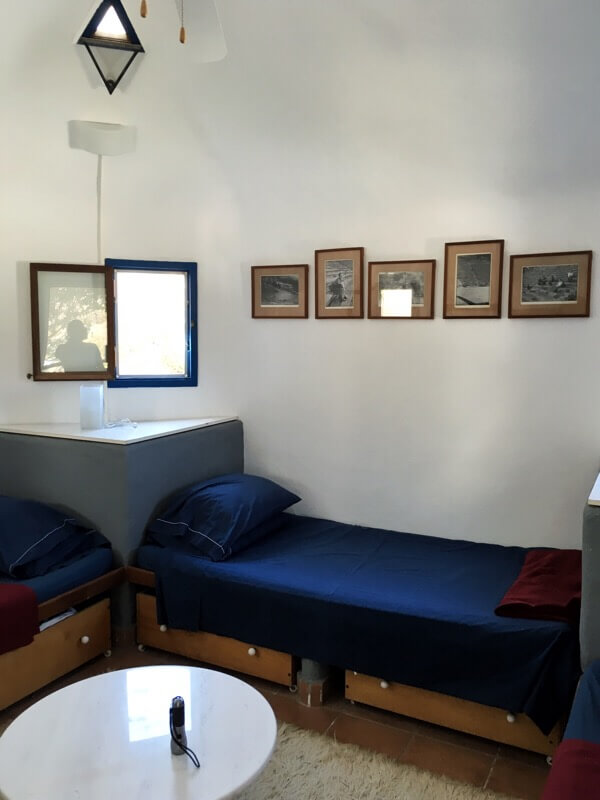
Mikros Horio is made of multiple small buildings, each one serving a separate purpose. It is indeed a tiny village!
